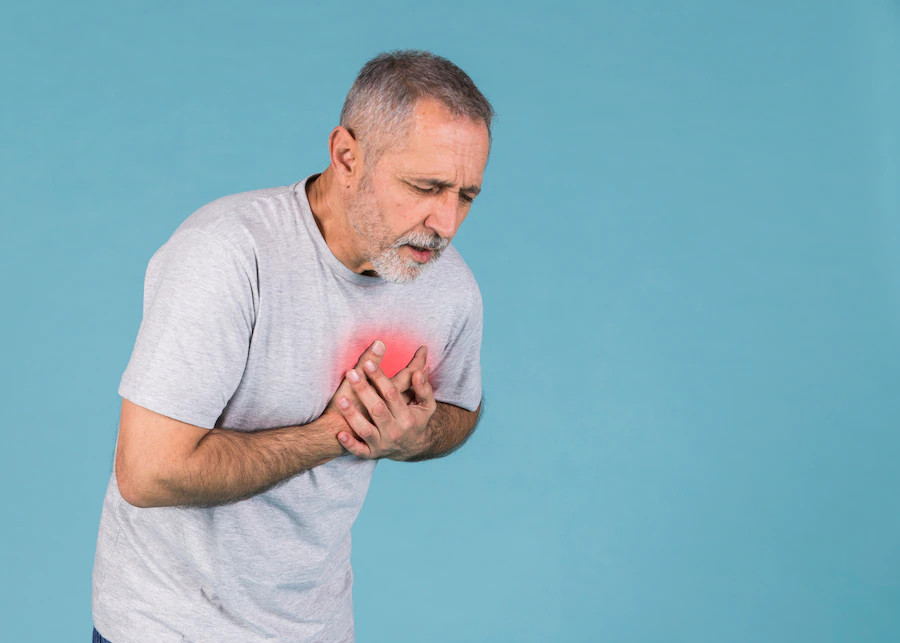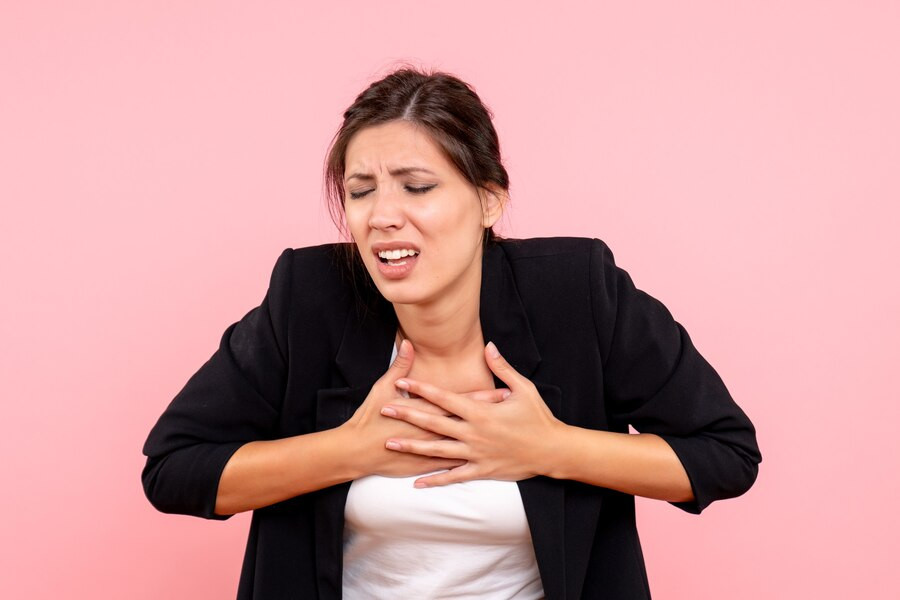Nyeri dada adalah salah satu tanda penyakit jantung. Meskipun demikian, nyeri di dada juga bisa disebabkan kondisi lain seperti misalnya sakit maag atau dispepsia.
Bagaimana membedakan nyeri dada yang disebabkan oleh penyakit jantung dan kondisi lainnya?
Seperti Apakah Nyeri Dada?
Nyeri dada bisa bermacam-macam bentuknya, mulai nyeri seperti tusukan tajam hingga nyeri tumpul. Nyeri di dada juga terkadang terasa perih seperti terbakar.
Pada kondisi tertentu, rasa nyeri di dada bisa menjalar ke leher, rahang dan menyebar ke punggung atau menjalar ke bawah ke salah satu atau kedua lengan. Umumnya orang selalu menganggap nyeri dada muncul karena adanya penyakit jantung, namun nyeri dada bisa disebabkan oleh berbagai kondisi penyakit.
Anda mungkin merasa sesak, pegal atau dada seperti diremas ketika nyeri dada datang. Rasa sakitnya bisa berlangsung selama beberapa menit atau jam.
Baca Juga: Sama-Sama Nyeri Dada, Ini Beda Nyeri Akibat Serangan Jantung dan Heartburn
Ciri-Ciri Nyeri Dada yang Disebabkan Penyakit Jantung
Nyeri dada yang terkait dengan penyakit jantung sering kali dirasakan sebagai nyeri yang samar atau rasa tidak nyaman di dada. Seiring berkembangnya gejala, Anda juga akan merasakan beberapa hal berikut:
- Dada seperti penuh, ditekan, terbakar atau sesak
- Rasa sakit hebat yang menyebar ke punggung, leher, rahang, bahu dan satu atau kedua lengan
- Nyeri berlangsung lebih dari beberapa menit
- Nyeri hilang dan muncul kembali dengan intensitas yang bervariasi
- Sesak napas
- Keringat dingin
- Pusing
- Jantung berdebar
- Mual atau muntah
Nyeri Dada Terkait dengan Kondisi Kesehatan Lain
Memang tidak mudah untuk membedakan nyeri dada yang berhubungan dengan penyakit jantung dan kondisi lainnya. Nyeri dada yang terkait dengan kondisi kesehatan lain dapat disertai gejala seperti berikut:
- Rasa asam atau sensasi makanan yang kembali ke kerongkongan dan mulut
- Kesulitan menelan
- Nyeri yang membaik atau memburuk tergantung pada posisi tubuh
- Nyeri yang makin parah saat bernapas dalam atau batuk
- Rasa sakit di dada yang bertahan selama berjam-jam
Saat nyeri dada yang dirasakan disertai dengan sensasi terbakar di bawah tulang rusuk, maka kemungkinan penyebabnya adalah gangguan pencernaan.
Baca Juga: Waspadai Tanda-Tanda Penyakit Jantung Koroner
Waspada Serangan Jantung, Ini yang Sebaiknya Dilakukan
Serangan jantung terjadi ketika jantung kehilangan suplai darah akibat penyumbatan di arteri terdekat. Serangan jantung ditandai dengan nyeri di dada dan bagian tubuh lainnya.
Penting untuk mengenali gejala serangan jantung dan mendapatkan pertolongan sesegera mungkin. Golden hour adalah jendela peluang yang memengaruhi kelangsungan hidup dan kualitas hidup pasien setelah serangan jantung.
Dalam waktu 80-90 menit, otot jantung mulai mati jika tidak mendapat asupan darah. Dan dalam waktu 6 jam, semua bagian jantung yang terkena akan rusak permanen.
Sehingga pertolongan terhadap tanda-tanda serangan jantung sebaiknya diberikan sebelum 60 menit. Pertolongan di rumah sakit akan membalikkan kondisi dan menyelamatkan jantung Anda.
Jika Anda bingung atau ragu dengan penyebab nyeri dada yang muncul, Anda bisa berkonsultasi ke dokter melalui aplikasi Ai Care yang bisa diunduh di Play Store atau App Store.
Mau tahu informasi seputar penyakit lainnya? Cek di sini, ya!
- dr Nadia Opmalina
Mayo Clinic (2021). Chest pain. Available from: https://www.mayoclinic.org/diseases-conditions/chest-pain/symptoms-causes/syc-20370838
Cleveland Clinic (2022). Chest Pain. Available from: https://my.clevelandclinic.org/health/symptoms/21209-chest-pain
WebMD (2022). Heartburn Symptoms. Available from: https://www.webmd.com/heartburn-gerd/guide/diagnose
Dr. Deepak Krishnamurthy, MD, DNB (2021). Heart attack: The Golden Hour. Available from: https://www.agappe.com/swiss_en/blog-details/heart-attack-the-golden-hour.html












